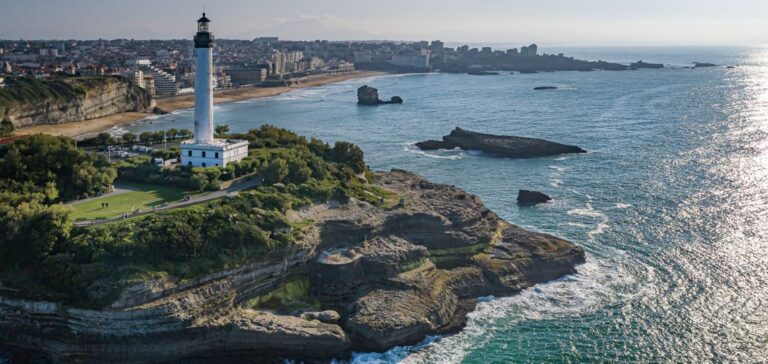A wave farm capable of producing at least 30% of the energy required by the Basque region’s 300,000 inhabitants by 2030: this is the ambition announced on Wednesday in Bayonne by the Nouvelle-Aquitaine region and the Basque Country agglomeration community.
The Basque region prepares the ground for wave energy: Progress and prospects
“We want to be the first in France to set up a wave energy production facility,” announced Jean-Pierre Laflaquière, vice-president of the Basque conurbation, at a press conference held on Wednesday at the port of Bayonne.
Wave power as an energy source is a “relatively immature technology compared with other renewable energies”, but it has seen “a clear acceleration over the last five years”, emphasized the elected representatives present.
The project, which has been under study for over ten years, is now focused on a two-kilometer site, just over seven kilometers from the Basque coast, opposite the Biarritz lighthouse. The site has been “derisked”, assures Mathieu Bergé, regional councillor in charge of ports.
Various studies have been carried out. In recent years – at the initiative of public authorities and with a budget of 1.2 million euros – to assess the impact of this installation on fishing, surfing, tourism, underwater channels, currents, biodiversity and marine mammal migration corridors.
Institutions have “taken the lead” to make it easier to attract manufacturers. In the same vein, the region has already set aside five to ten hectares of land in the industrial port of Bayonne for the future industry,” explains Mathieu Bergé. To finance this project, estimated at “several hundred million euros. The region and the Basque metropolitan area are counting on state aid to support investments by future industrialists. But also on negotiating a profitable feed-in tariff.
“It’s a risk we’re willing to take because we’re convinced it will work. When the Danes started developing offshore wind power, they also took risks,” insisted Jean-Pierre Laflaquière.
In the coming months, tests of technologies currently under development could be carried out in situ. “In operational terms, we’re the most advanced in France,” assures the regional councillor.






















